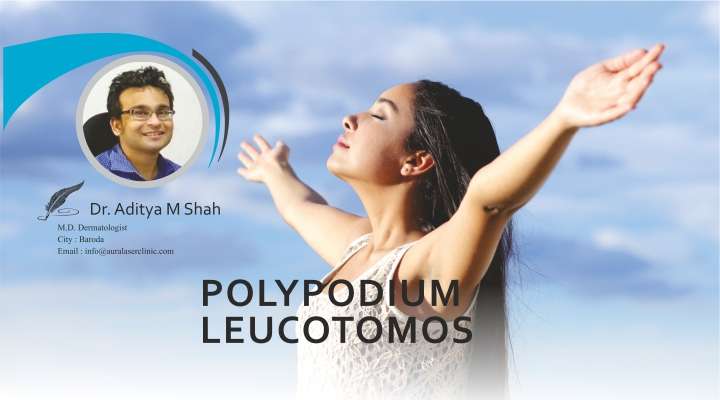Much of the research that has been done on Polypodium Leucotomos over the past 40+ years has been on its management of skin conditions and its photo-protective properties after it is ingested. Many of these clinical studies have shown extracts of Polypodium Leucotomos to be surprisingly effective at defending skin against damage from the sun (ultraviolet radiation) when Polypodium Leucotomos is taken orally, with some authors even calling it an “internal sunscreen.” Polypodium Leucotomos extract is beneficial to individuals with extremely sensitivity to the sun. All the individuals had either polymorphic light eruption (itchy red rashes from sun exposure) or solar urticaria (a form of hives caused by sunlight), but had not responded well to other available therapies.
Polypodium Leucotomos is used to prevent certain skin problems including sunburn, eczema (atopic dermatitis), psoriasis, vitiligo, and skin cancer. It is also used for other cancers and Alzheimer’s disease.
Polypodium Leucotomos extract (PLE) comes from a tropical fern plant grown in Central and South America. Native Americans have used the plant extract for centuries for the treatment of inflammatory disorders and skin diseases. Clinical research has shown that it has antioxidant and photoprotective properties and taken orally provides protection against the harmful effects of ultraviolet (UV) radiation from the sun and other sources.
Polypodium Leucotomos might have antioxidant effects. Antioxidants might prevent damage caused by excessive sun exposure. (Information from WebMD) Extracts of the tropical fern Polypodium Leucotomos appear to possess beneficial properties for the skin attributed to the presence of numerous compounds within the extract that have antioxidant and photoprotective properties.(1)
It is well documented that chronic unprotected or excessive ultraviolet (UV) radiation exposure induces a variety of damage responses on cellular and molecular levels, including the induction of stress proteins, indirect DNA damage due to reactive oxygen species and direct DNA damage due to formation of cyclobutane pyrimidine dimers; these lead to immunosuppression and carcinogenesis.
Human interventions note that it seems to beneficially influence most skin conditions, with fairly reliable suppression of erythema (reddening of the skin in response to UV radiation) and can help those hypersensitive to sunlight and suffer from “polymorphic light eruptions”, a delayed onset of itchiness and reddening (not necessarily a sunburn).
The mechanism of action of PLE is fairly complex but has been summarized into the following main points:
- PLE acts as a scavenger to mop up free radicals and reactive oxygen species (ROS), particularly superoxide anions (these high energy molecules cause direct cell damage and have long been associated with all types of cancer).
- PLE inhibits the depletion of Langerhans cells.
- PLE reduces the number of sunburn cells.
- PLE protects DNA by inhibiting the formation of cyclobutane pyrimidine dimers (cancer-causing cells) induced by UVB radiation. PLE preserves skin tissue structure by inhibiting the infiltration of mast cells into skin (mast cells release chemicals in the body that cause inflammation, redness and itching).
PLE is marketed as a dietary supplement containing a combination of the antioxidants. These are rapidly absorbed and provide early protection that lasts up to 2 hours after administration, against the initial signs of sunburn (erythema). However, the photoprotective effect of PLE extends beyond just decreasing erythema. The antioxidant properties of orally administered PLE work at protecting the skin at a deeper cellular level that is not achieved with topically applied antioxidants.
PLE has not been clinically tested in patients less than 18 years, and in pregnant or breastfeeding women. Hence, there is no data to support its use in these groups.
Polypodium Leucotomos is POSSIBLY SAFE when taken orally or applied to the skin, short-term. The safety of long-term use is not known. There is very little information available about possible side effects of Polypodium Leucotomos. It may cause upset stomach in some people.
Reference:
1.Mark Nestor, MD, PhD,a Vivian Bucay, MD,b Valerie Callender, MD,c Joel L. Cohen, MD,d Neil Sadick, MD,e and Heidi Waldorf, MDf. Polypodiumleucotomos as an Adjunct Treatment of Pigmentary Disorders. J ClinAesthetDermatol. 2014 Mar; 7(3): 13–17.
*-*-*






